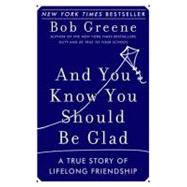
Note: Supplemental materials are not guaranteed with Rental or Used book purchases.
Purchase Benefits
The New copy of this book will include any supplemental materials advertised. Please check the title of the book to determine if it should include any access cards, study guides, lab manuals, CDs, etc.
The Used, Rental and eBook copies of this book are not guaranteed to include any supplemental materials. Typically, only the book itself is included. This is true even if the title states it includes any access cards, study guides, lab manuals, CDs, etc.
We walked slowly to Audie Murphy Hill.
It's at the corner of Ardmore and Elm -- the north edge of the small front lawn at 228 South Ardmore. He -- Jack -- used to live in that house, when we first became best friends. We were five then; we were fifty-seven now, standing next to the lawn, next to Audie Murphy Hill.
"It seemed so steep," I said to him.
"Well, we were little," he said.
This was toward the end -- there would not be many more of these walks for us, the months leading up to today had taken their toll -- but every time I came back home to see him, we made the walk. He wanted to.
The slope hardly rises at all -- it's not really a hill, at least in the eyes of grown men. But in those years when he and I first knew each other -- the years just after World War II, the years during which the fathers of the families in the town had come home from Europe and the Pacific, had bought houses on streets like this one, had started to settle back into life during peacetime -- it had felt to us like something out of Italy or North Africa. We would charge up that slope -- up that placid piece of grass on that safe Ohio street in a town where only 13,000 people lived -- and, sticks in hand, sticks standing in for rifles, we would pretend that we were Audie Murphy. The most decorated combat soldier of the Second World War.
"Maybe the new owners of the house leveled off the lawn," I said to him now.
"No," he said. "This is how it was. It just felt steeper."
We were still on the sidewalk. I was trying to see what was in his eyes, without him knowing I was looking. Fat chance. He always noticed everything.
"Your dad used to watch us sometimes," my oldest friend -- no longer a boy, no longer sure of anything -- said. He was getting tired. I had told his wife that we wouldn't be long. Their house was less than a mile from his parents' old house -- less than a mile from Audie Murphy Hill.
"I know," I said. "My dad would be picking me up in his car, to take me home for dinner."
Those men home from their war -- what must they have thought? It hadn't even been ten years for them, back then -- ten years earlier they had been fighting in Europe, fighting on the islands of the Pacific, and then they were here, leaning against their Fords and Buicks, waiting while their sons finished playing soldier in the dying sun.
"They were much younger than we are now," I said to Jack.
"They were in their thirties," he said.
I thought I should ask him, so I did:
"You feel like climbing up the hill?"
It wasn't a hill at all. But it was too steep. Now, near the end, just as at the beginning of our lives, at the beginning of our friendship, it was too daunting for him, at least on this day.
"Let's go back," said my oldest friend.
We started to walk -- slowly, because he was unsteady -- toward his waiting wife, toward home.
And You Know You Should Be Glad
Excerpted from And You Know You Should Be Glad: A True Story of Lifelong Friendship by Bob Greene
All rights reserved by the original copyright owners. Excerpts are provided for display purposes only and may not be reproduced, reprinted or distributed without the written permission of the publisher.